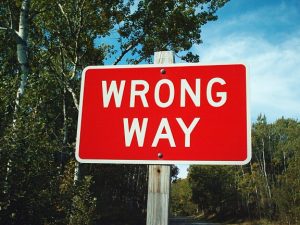While many car crashes in Florida are caused by human error, the design of roadways also plays a significant role in preventing car accidents. In many cases, those who are injured in road crashes don’t even realize that the design of the area they were traveling in may have contributed to their collision.
If you’ve been injured in a car crash anywhere in South Florida, it’s important to get all the answers about what caused your accident, so you can find all liable parties and pursue the compensation you deserve. You can start by contacting Flaxman Law Group to speak to a Florida car accident claims attorney in a free, no obligation consultation. You can find out more about whether you have a claim and what you might be able to do to maximize your financial recovery.
The Design Elements That Play a Role in Preventing Car Accidents in Florida
Roadways are about more than the paved surface. Any of the following elements can contribute to or reduce your risk of a crash:
- Signage. Clear and visible road signs are the first line of communication between drivers and the road. Signage communicates speed limits, upcoming turns, and potential hazards. It ensures that drivers have the necessary information to make informed decisions.
- Intersection design. Intersections are high-risk areas where vehicles, pedestrians, and cyclists converge. Well-designed intersections incorporate features such as traffic lights, stop signs, and crosswalks to manage traffic flow and minimize the risk of collisions. Poorly designed intersections, on the other hand, can lead to confusion, congestion, and accidents.
- Visibility and lighting. Adequate visibility is essential for safe driving, especially during nighttime and adverse weather conditions. Proper lighting, reflective road markings, and well-placed streetlights enhance visibility and reduce the chances of accidents.
- Lane configuration. The layout of lanes influences traffic flow and safety. Poorly designed roadways might have inadequate merging lanes, abrupt lane changes, or confusing road markings that can increase the likelihood of accidents.
- Pedestrian and cyclist infrastructure. Dedicated bike lanes, pedestrian crosswalks, and sidewalks enhance safety for non-motorized road users, preventing accidents involving vulnerable individuals.
- High-risk areas. Some road segments are riskier because of steep grades, sharp curves, limited visibility, or other factors that can’t always be mitigated. Proper road design incorporates warning signs, barriers, and speed limit adjustments to mitigate the risks associated with these areas.
- Traffic flow. Good road design considers factors such as lane capacity, traffic signal synchronization, and entry and exit points to maintain a smooth flow of traffic.
When Poor Florida Road Design Contributes to Your Car Collision
Ideally, communities would work with engineers and other experts to efficiently use all the elements of good road design to create safer streets. It doesn’t always happen that way.
If you’ve been involved in a car accident due to poor lighting, missing street signs, and other road issues, you may have a legal claim. However, this claim is often against the local government, which enjoys some protection from liability. You may need to work with an experienced Florida car accident claims attorney to pursue the financial recovery you need to pay for car repairs, medical bills, lost income, and other losses you’ve sustained.
If you’ve been injured in a car accident and need answers about your right to compensation, reach out to Flaxman Law Group today. We’re a family law firm and our father-son attorney team has recovered over $100 million on behalf of thousands of injured people just like you. With more than 60 years of experience, we’re willing to pursue claims all the way to court if that’s the best way for you to get compensation.
If you’ve been injured in a car accident, reach our offices in Miami, Homestead, or Hollywood by calling 866-352-9626 to arrange a free, no obligation consultation with a Florida car accident claims lawyer on our team.
 Florida Car Accident Lawyer Blog
Florida Car Accident Lawyer Blog


